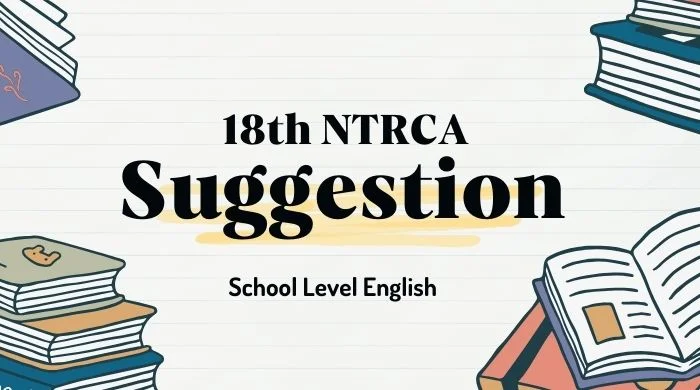Pronouns, those unassuming yet essential components of language, play a pivotal role in streamlining communication and enhancing linguistic efficiency. In this blog post, we will explore the intricacies of pronouns in both the Bangla and English languages, delving into their significance, various types, and versatile applications.
Pronoun, এগুলি ছোট শব্দ, তবে প্রতিটি ভাষায় Pronoun এর অসীম গুরুত্ব রয়েছে। এই চমৎকার শব্দগুলি, যা সাধারণভাবে Noun এর স্থানে ব্যবহত হয়ে, আমাদের ভাষা এবং যোগাযোগে অবিশ্যই গুরুত্বপূর্ণ ভূমিকা পালন করে। এই সংক্ষেপক পোস্টে, আমরা Classification of Pronoun, কাজ বা Function, এবং ভাষার জগতে তাদের গুরুত্ব নিয়ে এক পর্যাপ্ত আলোচনা করব।
Watch the tutorial on pronouns Read more about Noun and their classification and
Understanding Pronouns
Pronouns are linguistic tools that replace nouns in sentences. These compact words serve as placeholders, reducing repetition and enhancing sentence structure. They are like linguistic shortcuts that make our communication smoother and more precise. Whether in Bangla or English, pronouns serve as vital building blocks for effective communication.
Importance of Pronoun
Pronoun হলো সংজ্ঞা অথবা নামের স্থানে ব্যবহৃত শব্দ, যা সংক্ষেপে বাক্যে ব্যবহৃত হয় এবং আমাদের কথা বলার প্রক্রিয়াকে সহজীকরণ করে। এই শব্দগুলি আমাদেরকে ব্যক্তি, বস্তু, ধারণা, বা গোষ্ঠী সম্পর্কে আন্তরিক করে তোলে এবং সংক্ষিপ্তভাবে সম্ভাষণ সুবিধা সরবরাহ করে।
Significance of Pronouns
- Reducing Repetition: Imagine a conversation without pronouns. Every time we referred to a person, place, or thing, we would have to use its full name or description. Pronouns, such as “he,” “she,” “it,” “they,” “we,” and “you,” help us avoid this repetitive phrasing and make our speech more efficient.
- Maintaining Clarity: Pronouns enhance sentence clarity by pinpointing who or what we are talking about. They help listeners or readers keep track of the subject, object, or possessive element in a sentence, making the message clearer.
- Creating Cohesion: Pronouns provide cohesion in written and spoken discourse. They help tie different sentences or parts of a text together by maintaining a reference to the same subject or object. This cohesion is crucial for effective storytelling, discussions, and presentations.
Types of Pronouns: A Comparative Overview

1. Personal Pronouns:
Personal pronouns refer to specific persons or things. They can be either the subject or the object of a sentence.
- Subject Pronouns: I, you, he, she, it, we, they
- Example: She is going to the park.
- Object Pronouns: me, you, him, her, it, us, them
- Example: The book belongs to me.
- Bangla: আমি, তুমি, সে, ও, আমরা, তুমি, তারা
- English: I, you, he, she, it, we, you, they
2. Possessive Pronouns:
Possessive pronouns indicate ownership and replace possessive adjectives + nouns.
Mine, yours, his, hers, its, ours, theirs
Example: The red pen is mine.
- Bangla: আমার, তোমার, তার, আমাদের, তোমাদের, তাদের
- English: mine, yours, his, hers, its, ours, yours, theirs
অনেকেই Possessive pronoun ও Possessive adjective বিষয় গুলো আলাদা করতে পারেন না তাই বিষয়টি এখানে পরিষ্কার করছি।
Possessive Adjectives: Understanding Ownership and Relationship
Possessive adjectives are a type of word used in language to indicate ownership, belonging, or relationship between a person or thing and something that belongs to or is associated with them. যে শব্দ দ্বারা কোনো ব্যক্তি অথবা বস্তু কারো মালিকানা বা কারো নিয়ন্ত্রনে বা অধিনে থাকা বুঝায় তাকে Possessive adjective বলে। অপর পক্ষে, Possessive pronouns গুলো মালিকানা বুঝায় এবং noun কে নির্দেশ করে। আরো সহজ করে বলতে গেলে, “my, his, her, their, our” এই শব্দ গুলোর পরে Noun থাকলে Possessive adjective হবে এবং এই শব্দ গুলোর পরে কোনো Noun না থাকলে possessive pronoun হবে। In English, possessive adjectives are used to modify nouns to show possession or relationship, and they provide valuable information about who something belongs to.
These adjectives express a sense of possession or connection and help us specify the relationship between the owner and the object in question. Let’s dive deeper into possessive adjectives and their usage:
Examples of Possessive Adjectives:
- My: This indicates that something belongs to the speaker.
- My car is parked outside.
- Your: This signifies that something belongs to the person being spoken to.
- Is your brother coming to the party?
- His: This shows possession by a male person.
- His laptop is very modern.
- Her: This denotes possession by a female person.
- I like her new dress.
- Its: This is used for inanimate objects or animals to indicate possession.
- The cat is playing with its toy.
- Our: This implies ownership by a group the speaker is a part of.
- Our team won the championship.
- Their: This indicates possession by a group of people other than the speaker.
- Their house is quite spacious.
Usage of Possessive Adjectives:
- Possessive adjectives are used before nouns to specify ownership or relationship.
- His house is near the park.
- They agree in gender and number with the noun they modify.
- Her books are on the shelf.
- Possessive adjectives do not change regardless of whether the noun is singular or plural.
- Their children are very talented.
- They concisely clarify possession or association, eliminating the need for lengthy descriptions.
- I borrowed your pen to take notes.
Distinction from Possessive Pronouns:
It’s important to note that possessive adjectives are different from possessive pronouns. While possessive adjectives modify nouns, possessive pronouns replace them entirely. For example:
- Possessive Adjective: This is my book. (Modifies the noun “book”)
- Possessive Pronoun: This book is mine. (Replaces the noun “book”)
In conclusion, possessive adjectives are an integral part of language that allow us to convey relationships of ownership and belonging concisely and clearly. They enhance our ability to communicate effectively and provide crucial context in various conversations.
3. Reflexive Pronouns:
Reflexive pronouns emphasize the subject of a sentence and are used with reflexive verbs.
- Bangla: নিজে, তারা, আপনি, আপনারা, তারা
- English: myself, yourself, himself, herself, itself, ourselves, yourselves, themselves
- Example: She dressed herself for the party.
4. Demonstrative Pronouns:
Demonstrative pronouns point to specific people, places, or things concerning the speaker.
- this, that, these, those
- Example: I want this book.
- Bangla: এই, সেই, ওই, যার
- English: this, that, those, whose
5. Interrogative Pronouns:
Interrogative pronouns are used to ask questions and inquire about people, places, or things.
- who, whom, whose, which, what
- Example: Whose car is that?
- Bangla: কে, কোন, কোনটি, কোনটা, কোনগুলি, কোনটিগুলি
- English: who, which, what
6. Relative Pronouns:
Relative Pronouns: Relative pronouns introduce relative clauses and connect them to main clauses.
- who, whom, whose, which, that
- Example: The person who won the prize is my friend.
- Bangla: যে, যার, যা, যেটা, যেখানে
- English: who, whose, which, that, where
Difference Between Interrogative pronoun and Relative pronoun
Interrogative Pronoun এবং Relative Pronoun গুলো দেখতে একই হলেও, তাদের ব্যবহার এবং কাজের সাথে কিছু পার্থক্য রয়েছে।
Interrogative Pronoun: ইন্টাররোগেটিভ প্রোনাউন হলো প্রশ্নের উদ্দেশ্যে ব্যবহৃত প্রোনাউন। এগুলি প্রশ্ন বাক্যে অবশ্যই ব্যবহার হয়। ইন্টাররোগেটিভ প্রোনাউন দ্বারা তৈরি প্রশ্নবাক্যে প্রধান বিষয় থাকে।
উদাহরণ:
- Who is coming to the party? (কে পার্টিতে আসছে?)
- Which book do you prefer? (তুমি কোনটি বইটি পছন্দ কর?)
Relative Pronoun: রিলেটিভ প্রোনাউন হলো যা একটি বাক্যের মধ্যে দ্বারা তৈরি এবং তার নিবাদে আসা অন্য একটি বাক্যের সাথে সংযুক্ত হয়। এগুলি বিশেষভাবে বিবরণ দেয় এবং সংযোজন করে, যাতে বাক্যগুলি অবশ্যই সম্পর্কিত থাকে।
উদাহরণ:
- The book that I am reading is interesting. (বইটি, যা আমি পড়ছি, টি আকর্ষণীয়।)
- The person who won the prize is my friend. (ব্যক্তি যে পুরস্কার জিতেছে, টি আমার বন্ধু।)
পার্থক্য: প্রাথমিকভাবে, ইন্টাররোগেটিভ প্রোনাউন এবং রিলেটিভ প্রোনাউন দুটি প্রকারের প্রোনাউন, তবে তাদের ব্যবহারে পার্থক্য রয়েছে:
- প্রশ্ন বাক্য বনানো: ইন্টাররোগেটিভ প্রোনাউন প্রশ্ন বাক্যে ব্যবহৃত হয়, যখন সম্পর্কিত তথ্য জানতে চাইছে।
- Who is that person? (সে কে?)
- Which one do you want? (তুমি কোনটি চাচ্ছ?)
- সংযোজন বাক্য তৈরি: রিলেটিভ প্রোনাউন সংযোজন বাক্যে ব্যবহৃত হয়, যাতে একটি বাক্য অন্য বাক্যের সাথে সংযুক্ত হয় এবং সংযোজিত বাক্যগুলির মধ্যে সম্পর্ক নিশ্চিত হয়।
- The car that I bought is blue. (গাড়িটি, যা আমি কিনেছি, নীল।)
- The book which I am reading is interesting. (বইটি, যা আমি পড়ছি, টি আকর্ষণীয়।)
সুতরাং, Interrogative pronoun প্রশ্নের উদ্দেশ্যে এবং সামান্য বিবরণের জন্য ব্যবহৃত হয়, যখন সম্পর্কিত তথ্য জানতে চাইতে হয়। Relative pronoun তাদের সাথে বাক্য সংযোজনে ব্যবহৃত হয়, যাতে একটি বাক্য অন্য বাক্যের সাথে সংযুক্ত হয় এবং সংযোজিত বাক্যগুলির মধ্যে সম্পর্ক নিশ্চিত হয়।
7. Indefinite Pronouns:
Indefinite pronouns refer to non-specific people or things.
- someone, anybody, something, everything, nobody, none, both, either
- Example: Everybody enjoyed the party.
- Bangla: কেউ, কেও, কেউটি, কেউটা, কেউগুলি, সবাই, কোনও, কোনটিও
- English: someone, anybody, something, everything, nobody, none, both, either
Reciprocal Pronouns:
Reciprocal pronouns indicate an action done by each of two or more subjects to the other(s).
- each other, one another
- Example: They help each other with their studies.
Intensive Pronouns:
Intensive pronouns emphasize a preceding noun and are not necessary for the sentence’s basic meaning.
- myself, yourself, himself, herself, itself, ourselves, yourselves, themselves
- Example: I made the cake myself.
Applications of Pronouns: Bangla and English Perspectives
Pronouns are versatile tools used for various purposes in both Bangla and English. Let’s explore some common applications of pronouns in both languages:
1. Personal Pronouns:
- Bangla: আমি একটি বই পড়তেছি।
- English: I am reading a book.
2. Possessive Pronouns:
- Bangla: এটি আমাদের।
- English: This is ours.
3. Reflexive Pronouns:
- Bangla: তিনি নিজেকে দেখতে পাচ্ছেন।
- English: She can see herself.
4. Demonstrative Pronouns:
- Bangla: সেই বইটি আপনার হাতে।
- English: That book is in your hand.
5. Interrogative Pronouns:
- Bangla: কে এই কাজ করেছে?
- English: Who did this work?
6. Relative Pronouns:
- Bangla: সে বইটি যে পড়তেছে, তা আমি জানি।
- English: I know the book that he is reading.
7. Indefinite Pronouns:
- Bangla: সবাই এখন পার্কে আসে।
- English: Everybody is coming to the park now.
Conclusion
Pronouns are linguistic chameleons that adapt to various roles within a sentence. Their ability to replace nouns, clarify references, and maintain cohesion makes them indispensable tools in effective communication. From personal to indefinite pronouns, these versatile components play a vital role in both Bangla and English, making language more efficient, concise, and comprehensible. So, the next time you communicate, remember the unsung heroes – pronouns – shaping your conversations in both Bangla and English.
 Sopner BCS Sopner BCS: We fuel your BCS dreams
Sopner BCS Sopner BCS: We fuel your BCS dreams




